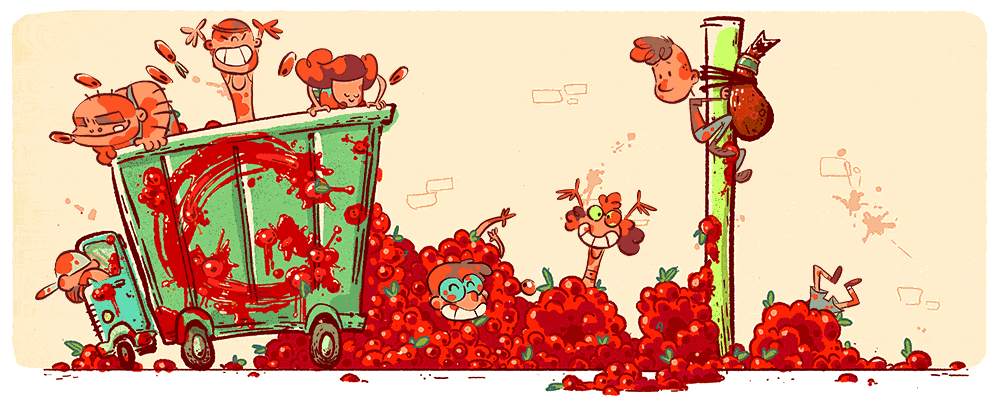
Google’s Doodle for the 70th annivdersary of La Tomatina. (Google)
One of the world’s largest annual food fights turns 70 this year and is being honored with a Google Doodle. On the last Wednesday in August each year, locals and tourists gather in the town square of Buñol, Spain, near Valencia, to pelt each other with smashed tomatoes and revel in the red-stained streets.
The 2015 tomato fight and celebration gets underway at 11 a.m. on August 26.
“For its 70th anniversary, Doodler Nate Swinehart captures the energy of today’s festivities with an animation awash in splattered tomatoes and brimming with the youthful delight of its characters,” Google says in the Doodle description.
Here’s what you need to know about La Tomatina:
1. La Tomatina Is Said to Have Started After a Fight Near a Market in 1945
There are many stories about how La Tomatina came to be. According to La Tomatina’s official website, it started at a parade in 1945. A fight broke out in the crowd and ended up near a market that was selling vegetables. The crowd began throwing the vegetables at each other. A year later, tomatoes and other vegetables were brought back to the festival for a second fight, and the tradition was born.
Other theories, according to Barcelona-Life.com, include, “the rubbishing of a bad musician,” tomatoes thrown at politicians as a democratic protest and “the ensuing aftermath of an accidental truck spillage.”
The event was banned in subsequent years, including during Francisco Franco’s time leading the country, but was reborn in the 1970s and has become quite successful since.
2. The Tomato Fight Starts After Someone Climbs a Greasy Pole in the Town Square to Retrieve a Ham
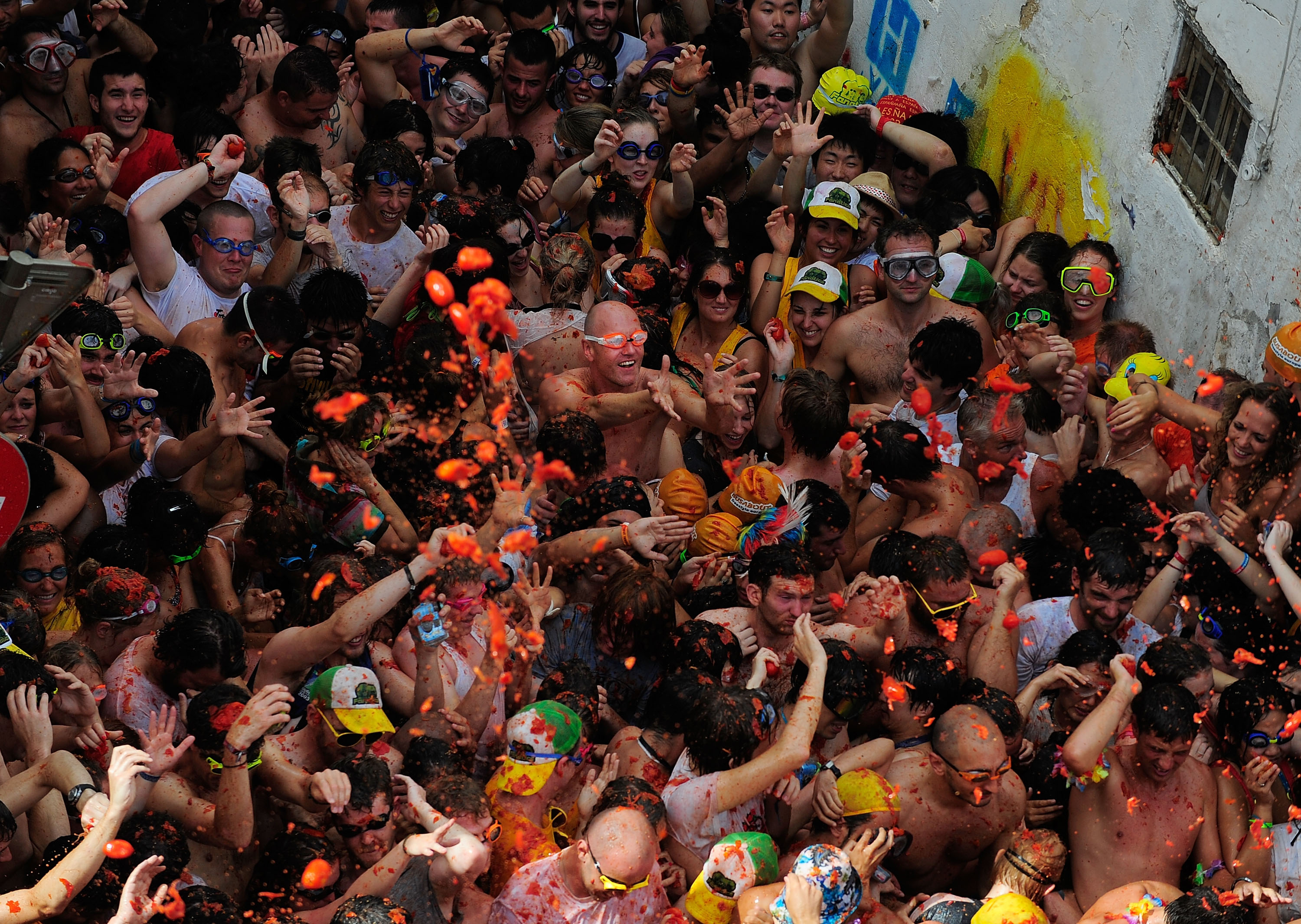
Revellers throw tomatoes at each other during the annual tomatina festival on August 31, 2011. (Getty)
The tomato fight doesn’t get started until after another tradition is completed, according to latomatinatours.com. A person from the town has to climb a large and greasy pole in the town square to retrieve a ham that is placed at the top. This happens at about 11 a.m.
“At around 11 a.m. many trucks haul the bounty of tomatoes into the centre of the town, Plaza del Pueblo. The tomatoes come from Extremadura, where they are less expensive,” the tourism website explains. “Technically the festival does not begin until one brave soul has climbed to the top of a two-story high, greased-up wooden pole and reached the coveted ham at the top. In practice this process takes a long time and the festival starts despite no one reaching the meaty prize. The signal for the beginning of the fight is firing of water cannons, and the chaos begins. Once it begins, the battle is generally every man for himself. After an one hour the fighting ends. At this point, no more tomatoes can be thrown.”
The city council has mandated that no other projectiles except tomatoes be thrown, and the tomatoes must be squashed to avoid injuries.
3. The Event Has Become a Major Tourist Attraction, Drawing Thousands to Buñol Every August
La Tomatina attracts thousands of tourists from around the world, and has become one of Spain’s most popular attractions.
In 2002, it was named as a “Festivity of International Tourist Interest” by Spain’s tourism secretary because of its success, according to the official website.
The event requires tickets, so that the local government can control the size of the town.
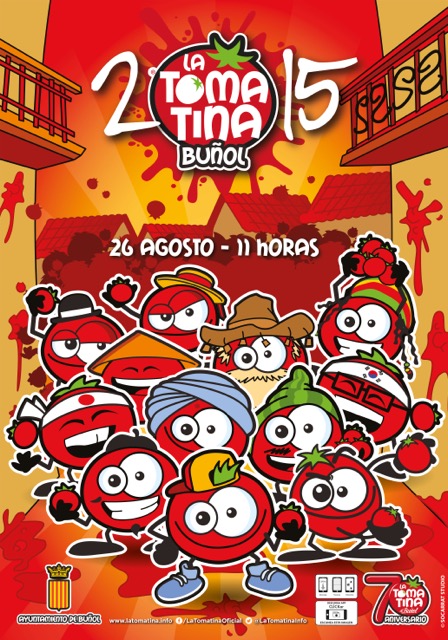
La Tomatina 2015 poster. (LaTomatina.info)
According to LaTomatina.info, the festival’s official website, this year’s event is “special” because it is the 70th anniversary. This is the third year in a row that the event has required tickets, and they are selling more than ever, with 22,000 expected to be sold.
La Tomatina will break its own record with almost 145,000 kilograms of tomatoes set to be thrown, the website says.
They expect participants from all over the world, with Australians (12 percent), Britons (11.79 percent), Japanese (10.17 percent) and Americans (7.64 percent), leading the way, along with, the locals and others from Spain.
4. The Blood-Red Tomato Juice Actually Keeps the Town’s Streets Clean
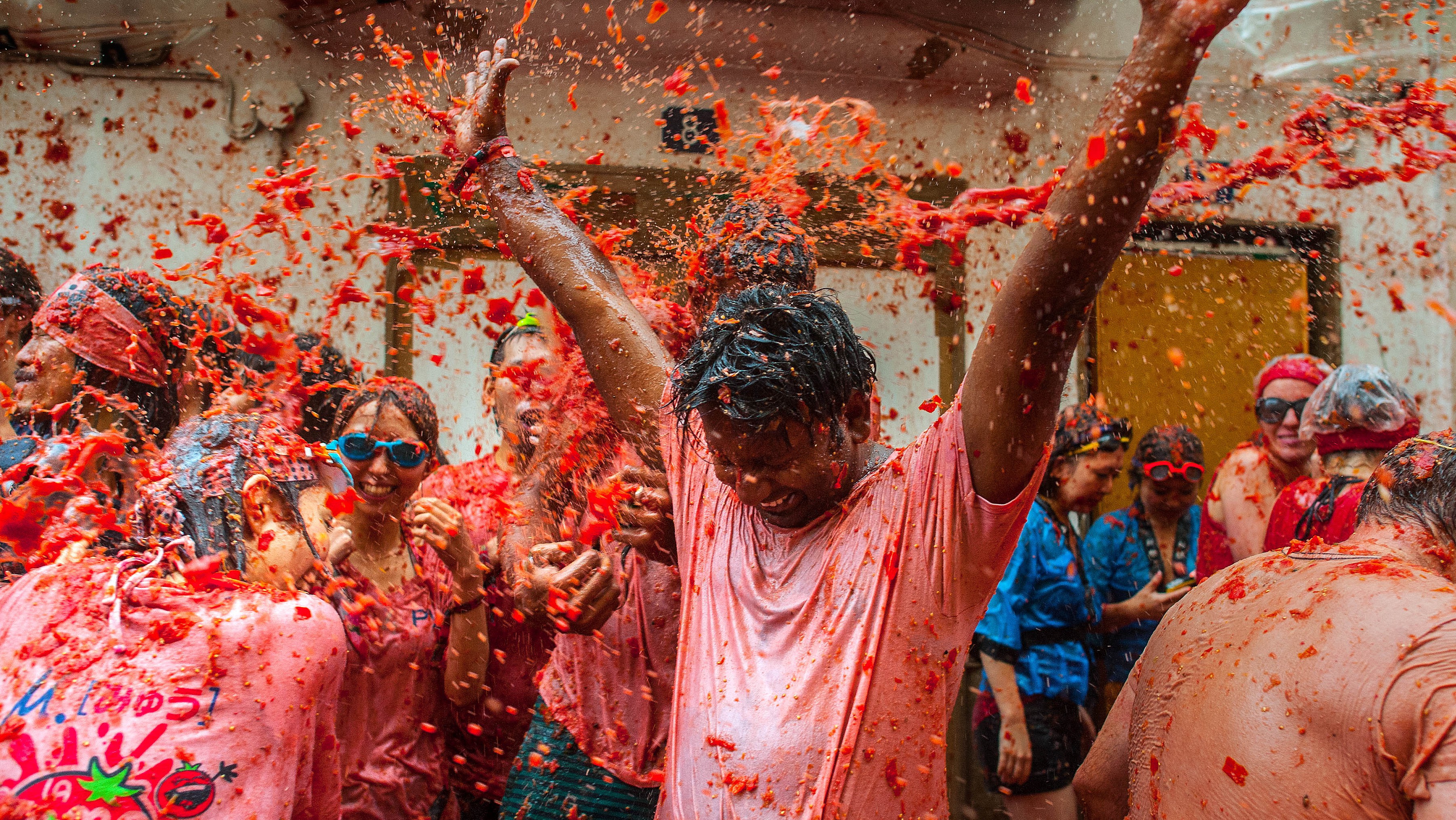
The 2013 La Tomatina festival. (Getty)
After the tomato throwing has been ended, fire trucks are used to hose down the streets, according to latomatinatours.com. Revelers, also covered in red, head to public showers, are hosed off by neighbors or jump in the local river to get clean.
After the red tomato paste is washed away by the hoses, the streets are remarkably clean. That is because the acidity of the tomatoes disinfects and cleans the streets.
5. The Tomato-Throwing Tradition Has Spread Around the World
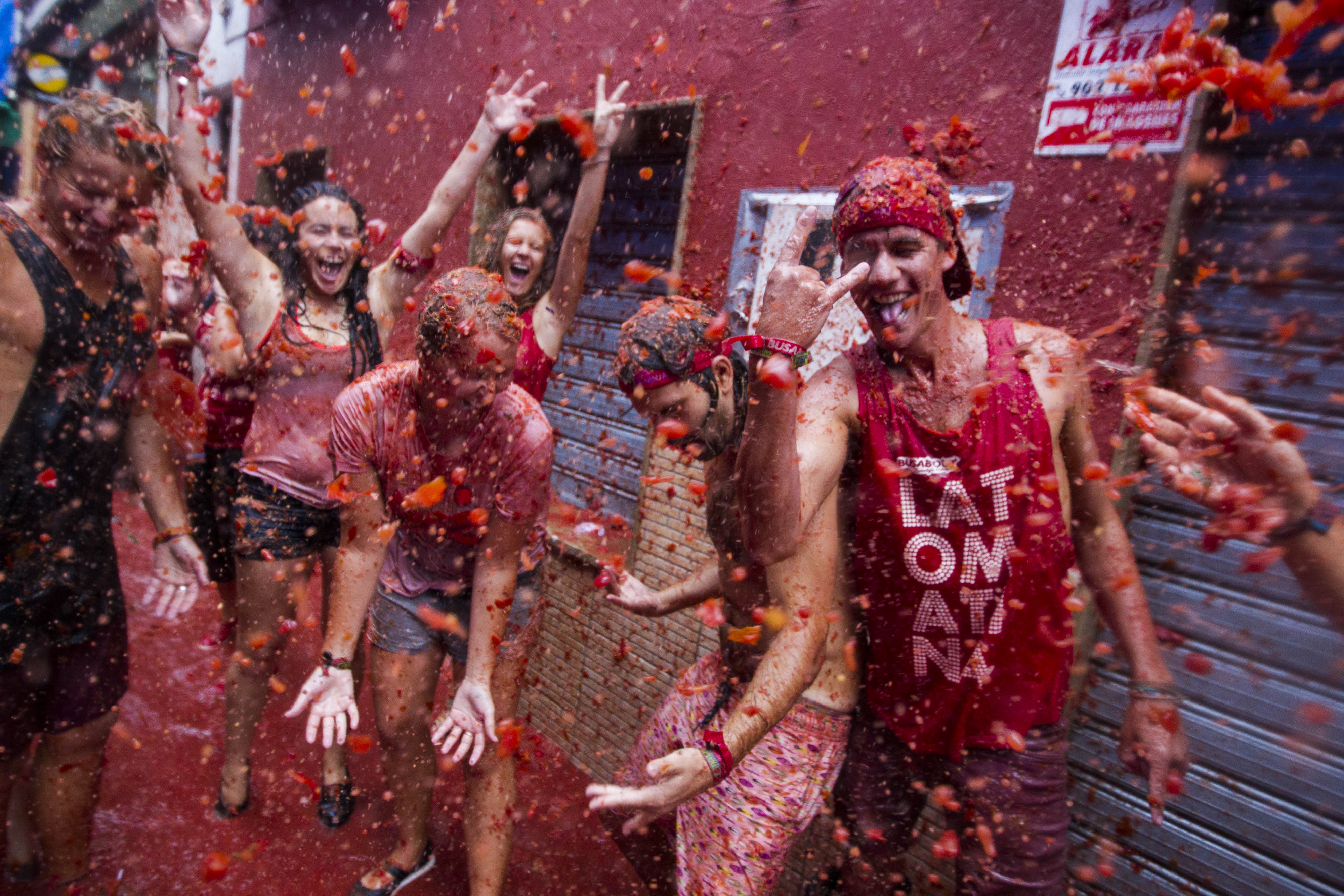
The 2013 La Tomatina celebration. (Getty)
La Tomatina has led to other similar celebrations around the world.
In Colombia, the town of Sutamarchán has held a tomato fight since 2004 in June. In the United States, Twin Lakes, Colorado, started the “Colorado-Texas Tomato War” in 1982, which pits residents from Texas and Colorado against each other in a food fight each September.
There are also annual La Tomatina-inspired events each year in Costa Rica and Chile.
